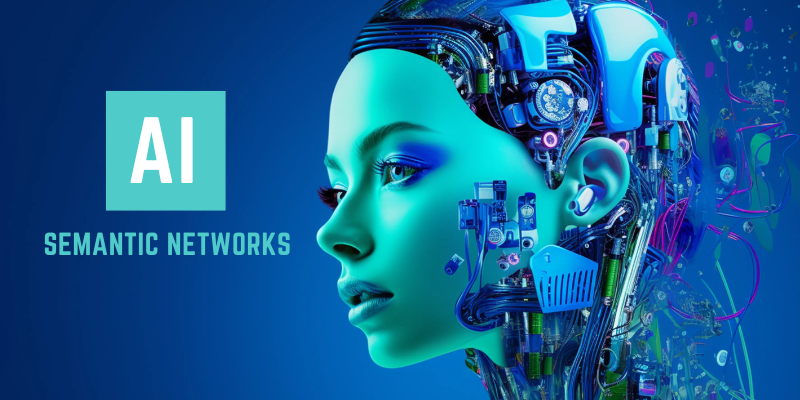
In the vast landscape of Artificial Intelligence (AI), semantic networks play a pivotal role in representing and understanding the intricacies of knowledge. These networks, inspired by human cognition, provide a structured framework for organizing information. In this blog post, we will delve into the concept of semantic networks, exploring their significance in Artificial Intelligence Course in Chennai, their applications, and how they contribute to the broader field of intelligent systems.
Understanding Semantic Networks
At its core, a semantic network is a graphical representation of knowledge that depicts relationships between concepts. In the realm of AI, this structure mirrors the way humans organize and connect information in their minds. Nodes in the network represent concepts, and edges define relationships between these concepts. This interconnected web forms a powerful tool for machines to navigate and understand complex knowledge domains.
Components of Semantic Networks
- Nodes
- Edges
- Beyond
Nodes
Nodes in a semantic network represent individual concepts or entities. These can range from tangible objects to abstract ideas.
Edges
Edges establish connections between nodes, representing relationships or associations. These relationships define the context and meaning within the network.
Attributes
Nodes can have attributes that provide additional information about the concept they represent. These attributes enhance the richness of the knowledge captured in the network.
Applications of Semantic Networks in Artificial Intelligence
Natural Language Processing (NLP)
Semantic networks are integral to NLP, enabling machines to understand the meaning behind words and phrases. They facilitate the identification of semantic relationships in language, enhancing language comprehension.
Knowledge Representation
In AI systems, representing knowledge in a structured form is crucial. Semantic networks provide an effective means of capturing and organizing knowledge, facilitating efficient reasoning and decision-making.
Question Answering Systems
Semantic networks contribute to the development of question-answering systems by enabling machines to analyze and comprehend the relationships between entities, leading to more accurate responses.
Expert Systems
Expert systems, designed to mimic human expertise in specific domains, leverage semantic networks for knowledge representation. This enhances the system’s ability to draw inferences and provide informed solutions.
Data Integration
Semantic networks aid in integrating data from diverse sources by establishing meaningful connections between different datasets. This is particularly valuable in scenarios where disparate data need to be harmonized for analysis.
Understanding Network Structures in AI
In the digital age, understanding network concepts is not limited to traditional IT. In the context of AI, a CCNA Course in Chennai can provide insights into network structures, including semantic networks, within the realm of intelligent systems.
Building Proficiency for Career Advancement
For those aspiring to specialize in the field of AI and delve into the intricacies of semantic networks, enrolling in an Artificial Intelligence course in Chennai is a strategic move. These courses cover a spectrum of AI concepts, including semantic networks, and equip participants with the skills needed to navigate the evolving landscape of intelligent systems.
Elevating Skill Sets for Industry Relevance
Bangalore, known as the Silicon Valley of India, is a hub for technology and innovation. Artificial Intelligence courses in Bangalore cater to the burgeoning demand for skilled professionals in AI, offering comprehensive training in semantic networks and other critical AI components.
Integrating Semantic Networks into Data Science
In the context of data science, where extracting insights from vast datasets is paramount, understanding semantic networks can enhance the intelligence derived from data. A Data Science Course in Chennai can provide the bridge between data and intelligence, incorporating the principles of semantic networks into the data analysis process.
Illustrating Practical Implementations
Healthcare Informatics
Semantic networks contribute to healthcare informatics by organizing medical knowledge. This aids in diagnosis, treatment planning, and the integration of patient data from diverse sources.
E-commerce Recommendation Systems
In e-commerce, semantic networks power recommendation systems by establishing connections between products based on user preferences and characteristics. This enhances the accuracy of product recommendations.
Intelligent Automation through Semantic Understanding
Robotic Process Automation (RPA) is revolutionizing business processes, and incorporating semantic networks into RPA Training in Chennai enhances the intelligent capabilities of automated systems. This fusion enables machines to not only execute tasks but also understand the context and relationships within the data they manipulate.
Automated Customer Support
Semantic networks play a role in automated customer support systems. By understanding the semantic context of user queries, these systems can provide more relevant and helpful responses.
Financial Fraud Detection
Detecting fraudulent activities in financial transactions involves analyzing patterns and relationships. Semantic networks contribute to fraud detection by mapping out connections and anomalies within transaction data.
Challenges and Future Trends in Semantic Networks
Navigating Complexity for Continued Innovation
Ambiguity and Context
Dealing with ambiguity and context in language remains a challenge for semantic networks. Improving systems’ understanding of nuanced meanings and contextual cues is an area of ongoing research.
Scalability
As datasets grow in size and complexity, ensuring the scalability of semantic networks becomes crucial. Efforts are being made to develop scalable architectures that can handle the demands of large-scale applications.
Dynamic Environments
Adapting to dynamic environments, where knowledge is constantly evolving, poses a challenge. Future trends involve enhancing the flexibility of semantic networks to accommodate changes in real-time.
Semantic networks stand as a cornerstone in the field of Artificial Intelligence, providing a structured approach to knowledge representation and understanding. From NLP to expert systems and data integration, the applications of semantic networks are diverse and impactful. For professionals and enthusiasts alike, enrolling in an Artificial Intelligence Course in Bangalore offers the opportunity to delve into the world of semantic networks and gain expertise in this foundational aspect of intelligent systems. As AI continues to shape the future of technology, understanding the role of semantic networks becomes increasingly vital for those seeking to contribute to the advancement of intelligent systems and applications.
Read Also: Artificial Intelligence Interview Questions and Answers
